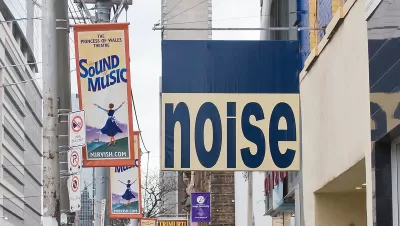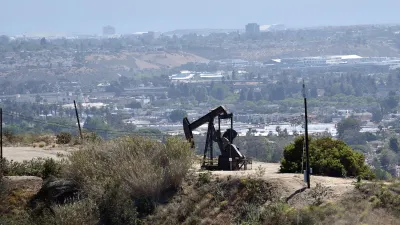Noise pollution tends to impact low-income communities more than others. For those who can afford the luxury, there are ways to shut out the noise.

Thomas McMullan reports on the question of to deal with the increasing noise that comes with urban densification.
As cities swell, writes McMullan, "there are signs we are finding it harder to cope with the noise." Not only are more people dealing with noise pollution in the city, noise pollution tends to affect low-income communities the most.
In the US, research from 2017 suggests poorer urban neighbourhoods are nearly two decibels louder than affluent areas. Noise pollution tracks social segregation. The same study also found that, across US cities such as Detroit and Chicago, communities with larger proportions of black, Hispanic and Asian residents face higher noise levels than other neighbourhoods.
As McMullan documents, recent research show noise pollution to have negative public health effects,l ike high blood pressure, heart attacks, and type 2 diabetes.
So what come be done about all that noise? McMullan provides examples of development projects that have deployed technology and building techniques to combat noise pollution, but usually at a cost premium. McMullan also describes innovative concepts, technologies, and practices of sound design, used to mask noise or add sounds to cover noise in the built environment—it's called pink noise rather than white noise.
FULL STORY: Cities are louder than ever – and it's the poor who suffer most

Trump Administration Could Effectively End Housing Voucher Program
Federal officials are eyeing major cuts to the Section 8 program that helps millions of low-income households pay rent.

Planetizen Federal Action Tracker
A weekly monitor of how Trump’s orders and actions are impacting planners and planning in America.

Ken Jennings Launches Transit Web Series
The Jeopardy champ wants you to ride public transit.

Rebuilding Smarter: How LA County Is Guiding Fire-Ravaged Communities Toward Resilience
Los Angeles County is leading a coordinated effort to help fire-impacted communities rebuild with resilience by providing recovery resources, promoting fire-wise design, and aligning reconstruction with broader sustainability and climate goals.

When Borders Blur: Regional Collaboration in Action
As regional challenges outgrow city boundaries, “When Borders Blur” explores how cross-jurisdictional collaboration can drive smarter, more resilient urban planning, sharing real-world lessons from thriving partnerships across North America.

Philadelphia Is Expanding its Network of Roundabouts
Roundabouts are widely shown to decrease traffic speed, reduce congestion, and improve efficiency.
Urban Design for Planners 1: Software Tools
This six-course series explores essential urban design concepts using open source software and equips planners with the tools they need to participate fully in the urban design process.
Planning for Universal Design
Learn the tools for implementing Universal Design in planning regulations.
Ada County Highway District
Clanton & Associates, Inc.
Jessamine County Fiscal Court
Institute for Housing and Urban Development Studies (IHS)
City of Grandview
Harvard GSD Executive Education
Toledo-Lucas County Plan Commissions
Salt Lake City
NYU Wagner Graduate School of Public Service





























